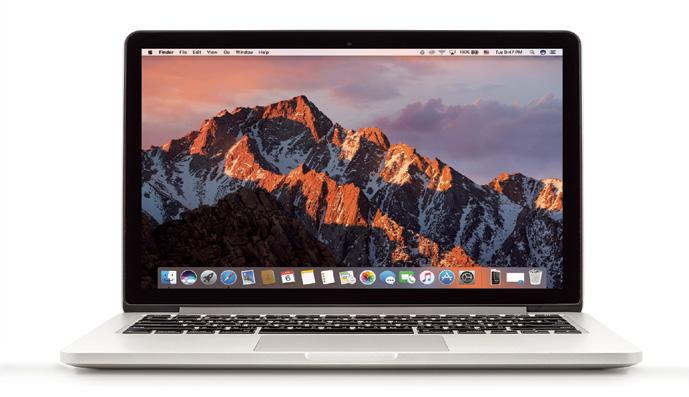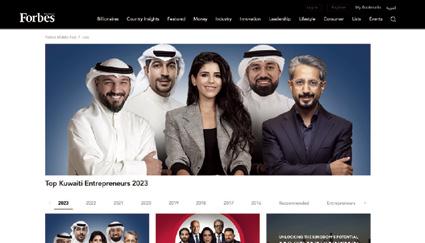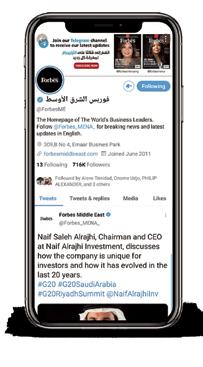
1 minute read
Staying Strong
This month, we release our tenth annual list of the Middle East’s biggest listed companies, and once again, it comes at a time of volatility, with the ramifications of the continuing war in Ukraine, global unrest, and rising inflation putting pressure on stock markets and businesses worldwide. Tech, retail, and media are just some of the industries that have faced layoffs and bankruptcies. But in the face of this, the Middle East remains fairly steadfast. While the aggregate market value of the 100 companies on our list has dropped around 5% since last year, revenues, profits, and assets are on the up, rising 38.5%, 37.7%, and 9.5%, respectively.
According to the Arab Federation of Capital Markets, EFG Holding reported that last year, the GCC significantly increased its contribution to global IPOs. In 2022, around 23% of the $91 billion worldwide total—or $21 billion—was raised by companies from the region, compared to just 2% in 2021. This is expected to continue in 2023, led by increasing interest in the Middle East as a fertile and secure ground for growth. Data from PwC suggests that, in Q1 2023, the GCC generated its second-highest Q1 proceeds from IPOs since 2015, despite having fewer IPOs than in previous years. Q1 2023 saw $3.3 billion in proceeds from nine IPOs—six in Saudi, two in the U.A.E., and one in Oman—compared to $4.9 billion from 15 IPOs in Q1 2022.
Advertisement
The Middle East’s biggest IPO in Q1 2023 was that of the U.A.E.’s ADNOC Gas, which was listed on the Abu Dhabi Securities Exchange in March, raising approximately $2.5 billion from over 3.8 billion shares, or 5% of the company’s total issued share capital. However, the region’s biggest stock exchange is still Saudi Arabia’s Tadawul, which had a market cap of $2.94 trillion as of the end of April 2023, compared to ADX’s $762.8 billion.
This month, we speak to the head leading the region’s eighth-largest stock exchange, Rami El-Dokany, Executive Chairman of the Egyptian Exchange, which had a market cap of $36.9 billion as of the end of April. While the country is battling rising interest rates and a plummeting currency, he’s trying to tempt private companies to its exchange to help bolster growth and protect the economy. We also take a company view by speaking to Ahmed Abdelaal, Group CEO of Mashreq, one of the region’s biggest and best-performing listed banks, which has seen its profits surge 252% in the last year. And we ask Ahmed Bin Sulayem, Executive Chairman and CEO of the Dubai Multi Commodities Centre free zone and the Dubai Gold and Commodities Exchange, where he thinks the safer investments are.
We also take a look back at some highlights from our incredible Women’s Summit in Riyadh last month. Hope you enjoy the issue.
—Claudine Coletti, Managing Editor













